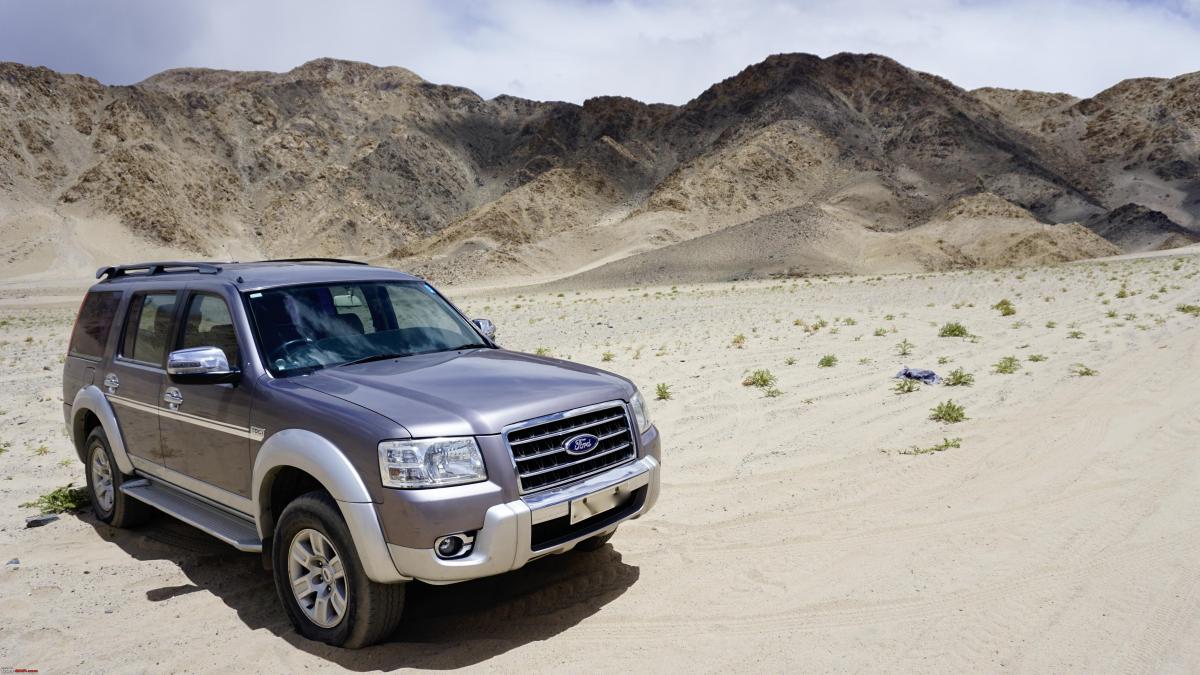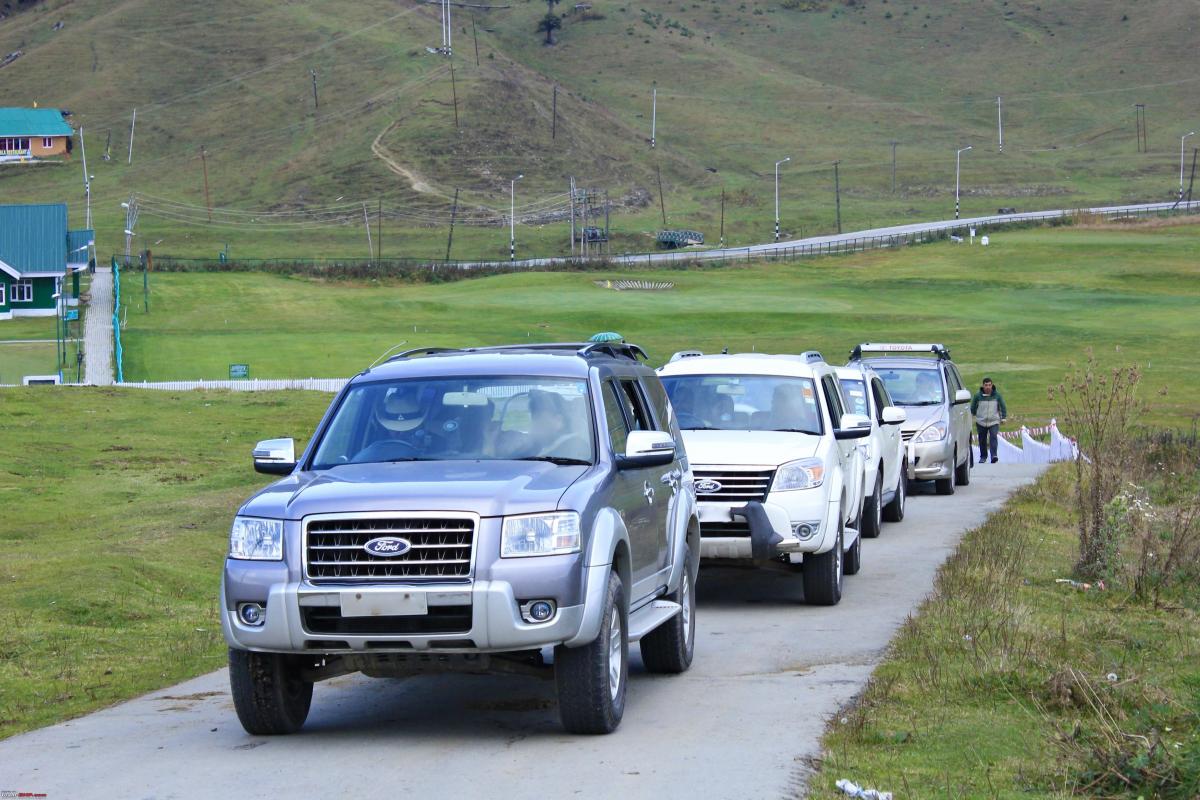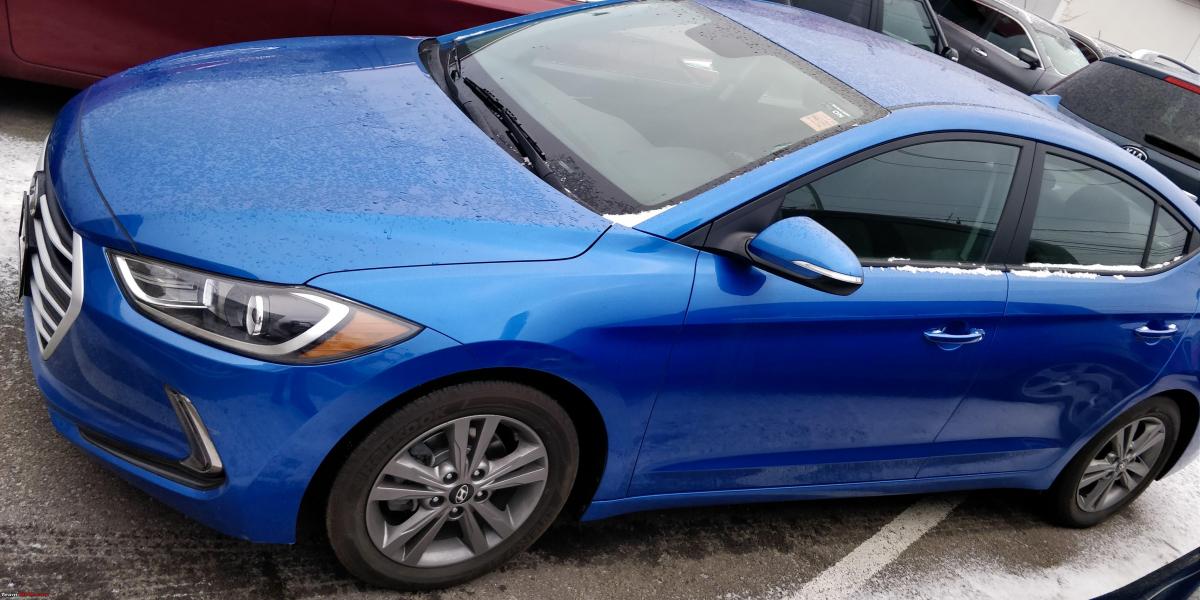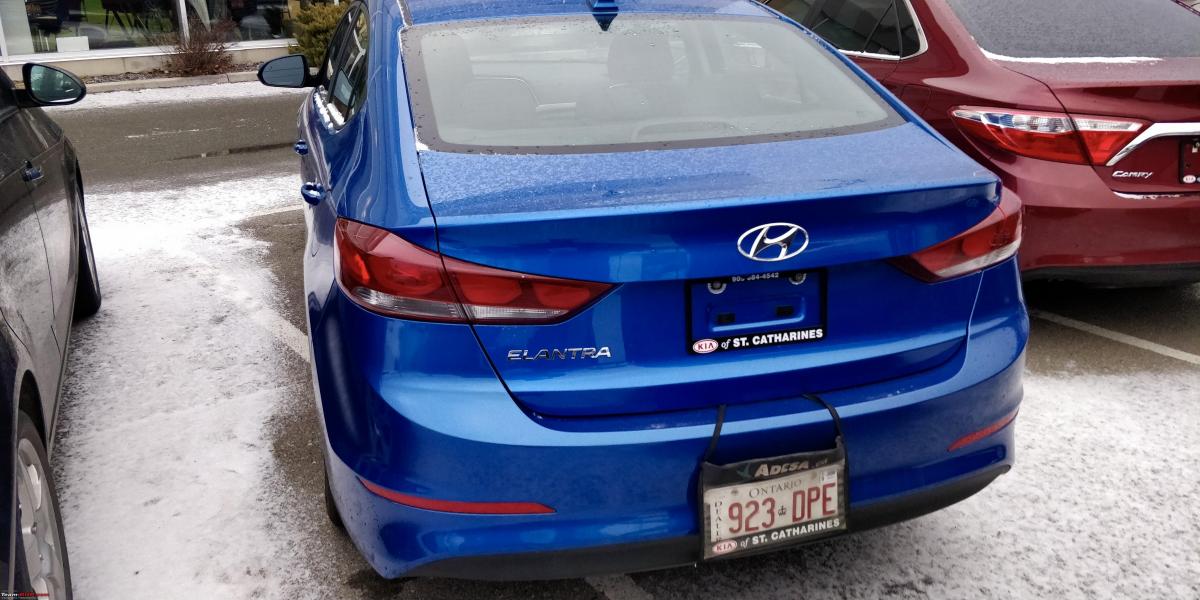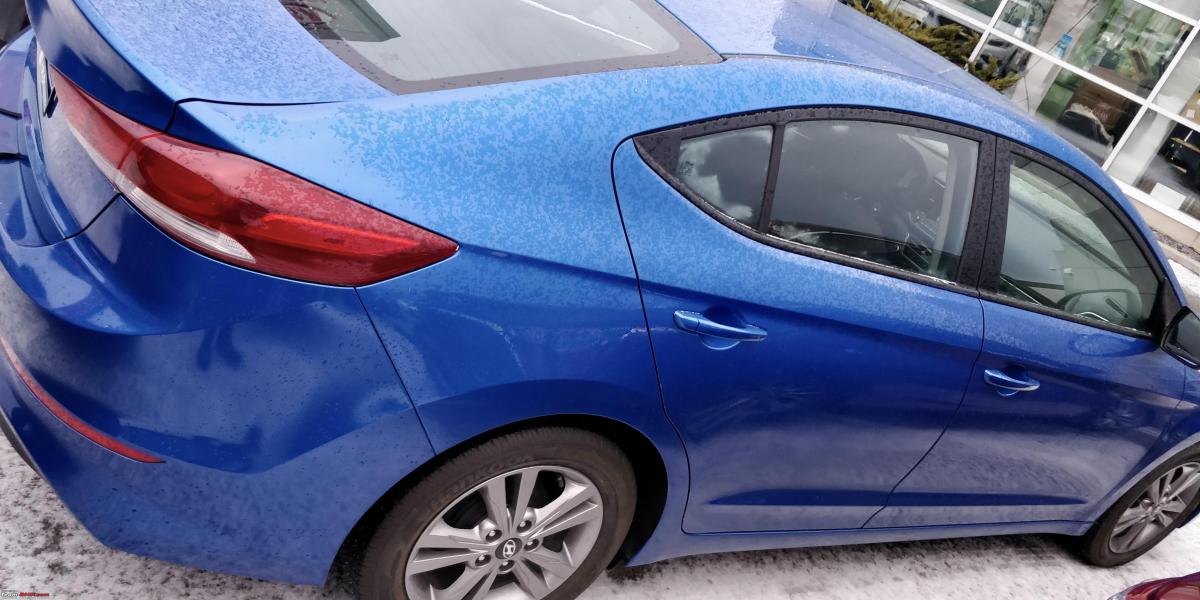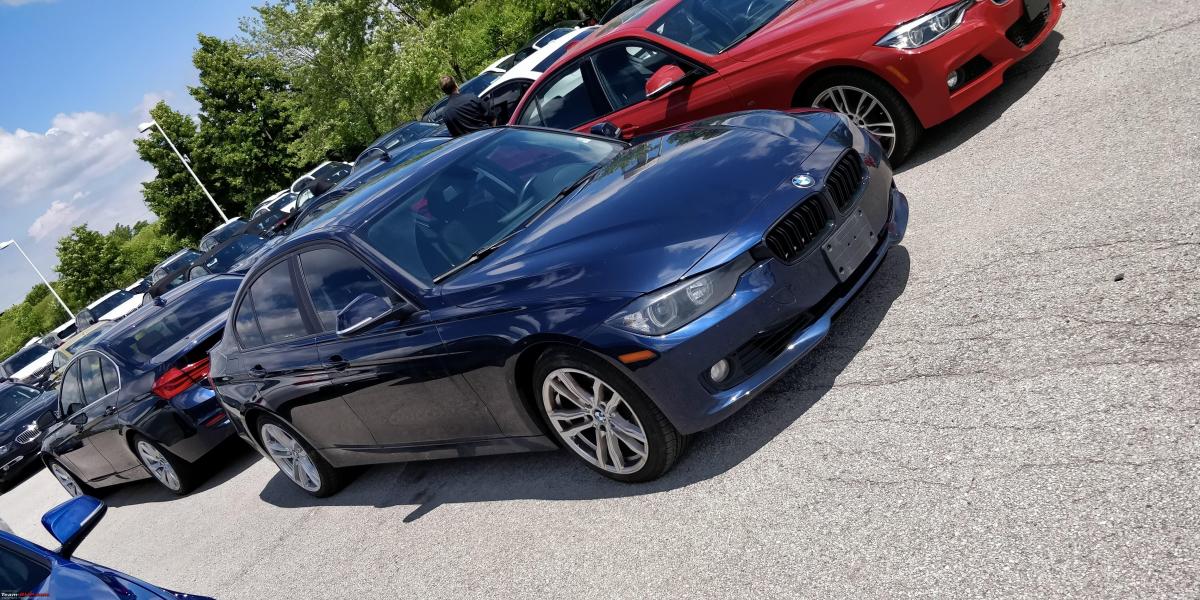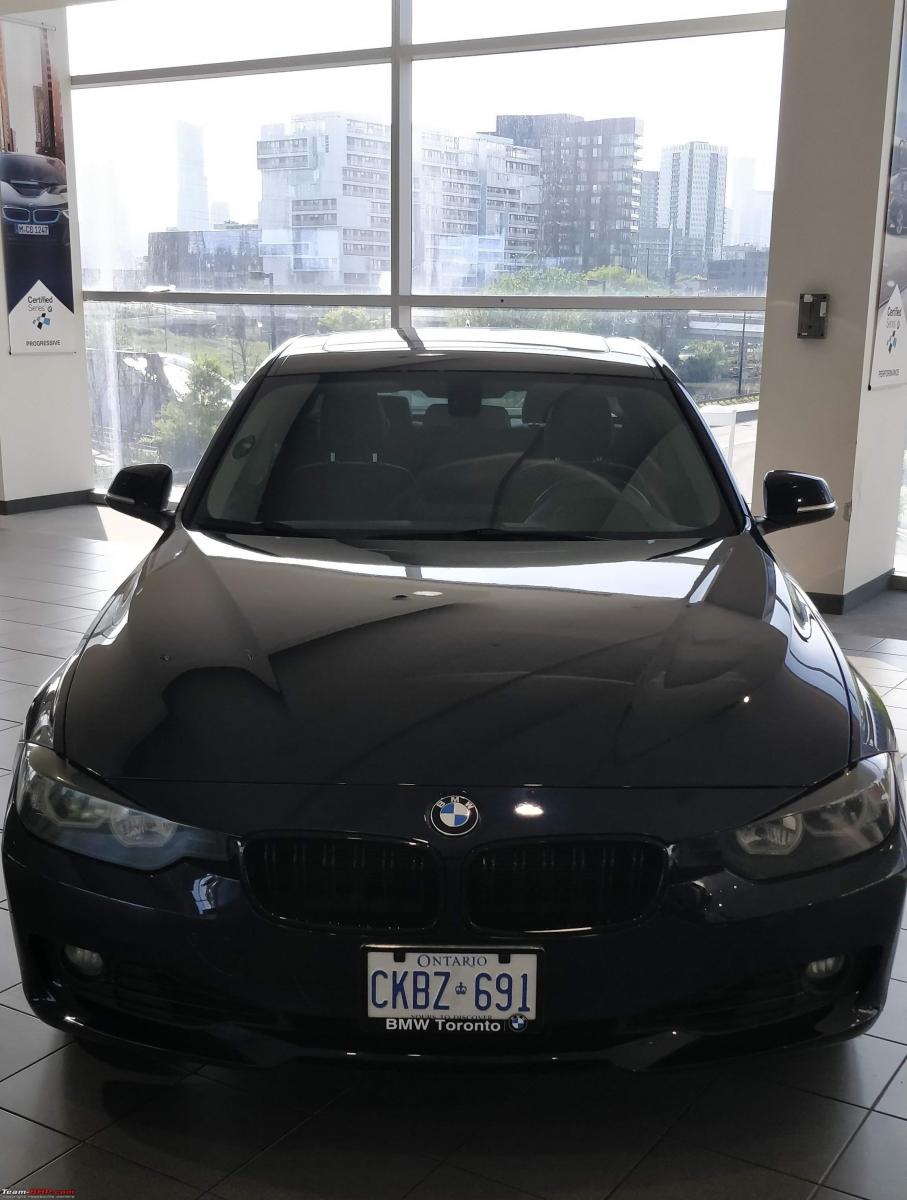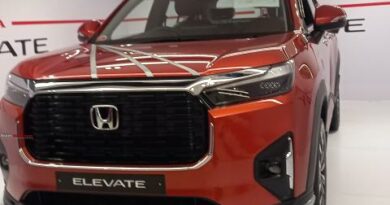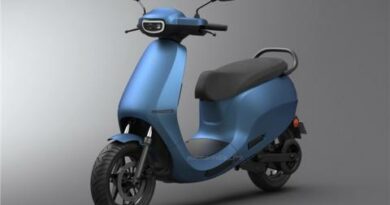How I started my car sharing venture in Toronto: Journey & challenges
Given the peak of winter, there were almost no bookings until February 2019, when we received our first booking amidst a snowstorm.
BHPian zubin245 recently shared this with other enthusiasts.
Hello everyone! As promised, I’m here to share my early experiences (2018-19) with the Turo car-sharing business.
Let me start off by saying the Canadian Dream is basically the American Dream with free Healthcare.
Ontario’s tax situation is worth noting—pretty much everything gets hit with a 13% tax, although I won’t be factoring that in when discussing vehicle prices.
Anyways, when I came to the North Pole to fulfill my Canadian Dream, I had to leave a lot of baggage behind in Delhi and move here. Apart from the obvious, friends and family, I had to leave my Family’s fleet behind. Those vehicles weren’t technically mine; my parents had worked hard for them. But I had the privilege of driving them. Our garage back in 2016 included:
2010 Ford Endeavour 4×2 2.5 MT
2009 Scorpio Getaway 4×2 MT
2010 Toyota Corolla Altis G Petrol MT
1999 Mitsubishi Lancer GLX Diesel (SOLD in 2012, while I was in my first year at college in Jaipur. Its loss hit me the most since I learnt to drive in that car and had hoped to take it with me)
Moving forward, I bid a heartfelt farewell to these cherished vehicles, marking the beginning of a new chapter in 2016. I sought after my Master’s Degree at the esteemed University of Toronto while juggling part-time jobs to cover expenses.
Most of the friends I made through these jobs, took the (less-than-wise) route of financing their first vehicles with $0 down, locking into unreasonable finance rates (especially for Canada) with lengthy terms like 7-8 years. Some even financed brand new cars under these terms.
Having done my research, I understood the tactics used by these dealers to profit and sought out the most suitable financing package for my situation. I had a few vehicles in mind and aimed for a car that qualified to be used for Uber. (It’s important to note that I came from humble beginnings and was solely focused on making ends meet.)
In 2018, after completing my graduation, while searching for a stable job, I narrowed down my car options specifically for Uber use, until I secured a more permanent opportunity.
- 2016 Honda Civic(~$18,000)
- 2017 Hyundai Elantra (~$17,000)
- 2013 Mitsubishi Outlander(~$15,000)
- An Evo imported from Japan (~$12,000, if I remember correctly)
The Evo option seemed like a long shot back then. Canada has an import rule permitting cars older than 15 years to be brought into the country, but it was an uncommon occurrence at that time. Moreover, Insuring a 22-year-old with only a right-hand drive (RHD) vehicle from Japan was nearly impossible due to the lack of available insurance options (little did I know, this market was on the brink of exploding). I’ll save this story for another time—stay tuned for the Evo thread (Yes! I’m working on that too).
Now, let’s address Ontario’s auto insurance, which happens to be among the most expensive globally. They aren’t keen on insuring individuals under 25 y.o., let alone something as unconventional as an imported car with the steering wheel on the “wrong”(-read as “right”) side. It was a massive hassle just to consider it, so I shelved that plan.
As for choosing among the other three vehicles, my heart leaned toward the Civic & Elantra (either/or), but the Outlander served as a reliable backup option. We had firsthand experience with Mitsubishi’s reliability and versatility through a close family friend’s ownership (the white Outlander in the Endeavour Pictures above).
After browsing dealership after dealership and nearly settling for a Blue 2016 Civic EX-T priced at almost $19,000, I realized the financial strain it would impose as a new-grad.
Disappointed by this realization, I opted for the cheaper alternative—the Outlander. A white 2011 with only 80,000km caught my eye online at a Dodge Dealership in Brampton (Yes, the stories are real). It was listed for $17,000. So, like a novice, I headed to the dealership, unaware of what awaited me. This marked my first real encounter with a salesperson, and let me tell you, the cliché of a pushy salesman was spot-on. From the moment I stepped in, I felt pressured to buy the car, which turned me off completely. Despite the car’s low mileage, they kept pressing me, claiming another buyer was also interested at the same time and whoever puts their offer in first will get dibs. The car needed extensive work, including new tires and brakes, so I decided to make it easy for them and got up and left.
Fuelled by frustration, I wandered into the nearby Mitsubishi Dealership, expecting a similar experience, uncertain if they even had the car I wanted. To my surprise, I was greeted warmly, and the salesman was devoid of any pressure. He promptly checked their inventory and found a 2013 model with 105,000km (a reasonable mileage in Canada, considering the prevalent freeway driving, which averages to 50km/trip or more). To add to the excitement, it was the top-tier GT trim, priced around $16,000. After test-driving it, I was smitten. I asked for a day or two to think it over, and he was understanding.
Returning two days later with my Uncle to seal the deal, I tried to leverage his experience as an adept negotiator, buying cars in Canada since the early 2000s. We started off our shrewd negotiations with an initial offer of $14,000. To our surprise they countered with $14,900 (instant $1,100 drop). After two hours of back-and-forth, we hit a deadlock at $14,400 from my end and $14,700 from theirs. We had to walk away, assuming they might get a full-price offer, and I’d lose the car for good. Two more days passed, and they called back offering it for $14,700 yet again. I politely declined, countering with $14,500. After an hour, they called back with yet another refusal (to my frustration) but a compromise at $14,600. I decided to go for it. Papers were signed, and I initiated financing with a $5,000 down payment and 5.99% financing over a five year term (a decision I would NEVER make again in hindsight).
Fantastic! Now I own the car, and it’s August 2018. Like any other 24-year-old juggling a newly financed car with monthly payments and seemingly unaffordable insurance, I signed up as an Uber driver. After hustling for about a month until September 2018, I landed a full-time job just a stone’s throw away from my home. This meant I didn’t really require the car during weekdays, only for leisure on weekends. Initially, I had considered renting the car out on Turo (a car-sharing platform) when I purchased the car. However, as a car enthusiast, the idea of letting someone else drive my prized possession didn’t sit well with me. But now, with a $500+ monthly commitment and a new job that didn’t offer a godly pay, it was becoming evident that owning the vehicle was still a luxury I couldn’t afford.
I first learned about Turo from one of Doug DeMuro’s videos in 2015, and it launched in Canada the following year, in 2016. I rented a 2013 BMW 328i in the Spring of 2018 and was thoroughly impressed with the concept and the array of cool vehicles available to rent on the platform.
Regarding insurance and Turo, I grasped the necessity of having a primary insurance policy for my vehicle, covering everyday driving, deliveries, fueling, and maintenance tasks. The Turo Protection, although not technically insurance but operating similarly, comes into effect when the rental trip commences. It provides coverage for any physical damage to the vehicle while it’s in the renter’s possession. This protection offers a $2,000,000 third-party liability and imposes a $0 deductible for damage repairs from my side. Initially, when I commenced in 2018, Turo used to deduct 30% of the base rate set for my vehicle. Over time, this deduction has reduced to 25% under the same conditions.
I’ll delve into other commission split plans later in my narrative, as they are recent additions to the platform. Similarly, I’ll address damages, payout methods for repairs, and their evolution over the years in the later parts of my story.
So, on the first Friday of September 2018, I listed the Outlander on Turo. The next morning, I woke up to a booking request for the entire weekend—Boom! $150. That wiped out a third of my monthly obligation in just one weekend! Hmmm! This seems promising.
However, as luck would have it, I had to commute to the next township for work shortly after September 2018, so I reluctantly paused the listing on Turo for the time being.
Fast forward to the New Year (2018-19), my parents expressed their desire to visit Canada for about 6 months and would need a vehicle instead of relying on me to drive them around. Having heard about Turo through me, they suggested purchasing another vehicle and using it for Turo rentals when they were out of the country, blocking it off when they were here. This sparked an idea! Under the agreement that the vehicle would be owned by them, I’d manage it on Turo, and credit their account with the earnings from the second vehicle, we were set. But now came the question—WHICH CAR?
Relying on my initial list when I shortlisted vehicles, I narrowed down the cheapest Civics and Elantras in the province. Surprisingly, the Civic was way more expensive than I had anticipated, nearly $18,000 for one with 120,000km on the odometer. However, I stumbled upon a low-mileage gem—a 2017 Elantra GL with only 36,000km—at a Kia Dealership about an hour’s drive from my place. Listed at $16,000, it had a price slash to $15,500 which is when I went to see it. I test drove it in the freezing January of 2019, corresponded with my parents about its condition, and placed a deposit.
The dealership promised me that the vehicle would be ready in a week and the full cash payment, wired from my parents in India, was made on delivery day.
I revived my Turo account by adding the second vehicle with fewer restrictions. Given the peak of winter, there were almost no bookings until February 2019, when we received our first booking amidst a snowstorm, which terrified me. I feared I’d never see the car again! Thankfully, it returned in great condition, and things started gaining momentum from there.
Both the cars engulfed in snow after a major snow storm
I should mention, this entire time I lived in Downtown Toronto in a room within a dated house at the edge of Chinatown. Parking was a hassle even with a street parking permit, and there was no on-site parking on the property.
Managing parking, renting out at least one car, and commuting to work, which took over 45 minutes each way, became increasingly challenging (get where this is going?). So, in March 2019, I moved to the neighbouring township of Etobicoke (pronounced Etobico’), as I was financially capable of affording my own condo in a great building, just a 5-minute drive from work.
Moving Day!
Despite concerns about reduced bookings after moving away from downtown towards the suburbs, my strategic location at the edge of downtown turned out to be a unique advantage. Easily accessible by public transit, I could cater to renters from both Downtown and my neighbourhood. Bookings started pouring in—week-long reservations, three-week reservations, and reservations with deliveries. I was on a roll! My choice of vehicle played an important part as well; the Elantra’s modern features and incredible gas mileage made it a highly desirable rental car. It was an instant hit in my area!
Moreover, upon settling into my condo building, I found out about the two car wash bays available in our underground parking. One bay allows for a basic spray down and is completely free for all residents. The second bay operates on coins and offers spray, foam, and wax services. To manage expenses, I opted to bring my own soap solution and employed a two-bucket method for washing cars, alongside a portable vacuum for car interior cleaning, effectively keeping my overhead costs low.
Come May 2019, with bookings going smoothly, it was time for my parents’ arrival. I had to block the vehicle’s availability until late October at the very least. When my parents reviewed the earnings from the vehicle, they were amazed by how much it had earned in just five months. After numerous discussions, as a family, we decided it would be wise to continue renting the vehicle and use it whenever available.
Once again, the close proximity of my new workplace to home, made me think about renting out the Outlander. My parents advocated strongly for it since it was their suggestion. I needed little convincing; I was already sold. Within the next two months, I rarely saw these two cars for more than a day at a time—they were constantly rented out. So much so that I paid off the Outlander loan by early July. In this time, my mom, dad, brother, and I contemplated the potential and debated if I should get a third vehicle.
Adding a third vehicle was a huge commitment. While my monthly insurance premium slightly decreased due to a multi-vehicle discount after the second vehicle, it still remained relatively high. However, in 2019, upon turning 25 and relocating from the city, I witnessed a 30% reduction in insurance rates for both vehicles combined. This prompted me to consider adding a third vehicle.
At that point in time, I had two vehicles, both free of liens. During my parents’ visit, I had managed to save a substantial amount of money by cutting back on expenses, avoiding unnecessary spending, and investing funds.
I wanted to explore something different from the mid-size SUV and economy sedan I already had. The idea of a luxury sedan, particularly a BMW 3 Series, intrigued me as I absolutely loved the F30 body style, having seen my superiors at work drive them. Therefore, I decided to explore options at a BMW dealership.
I should note why I was considering company dealerships for used vehicles at that time. The answer was clear, they know the products they’re selling, and certified used vehicles typically come with a 30-day warranty. For instance, when my Outlander needed a new rear-left shock and a new 12V car battery shortly after delivery, all repairs were covered at no cost. This assurance in buying certified used vehicles instilled confidence, and I somewhat use this strategy to buy reliable used vehicles even today.
Back to the hunt for the BMW, I did some research and found that the 2014 and up model year had the updated iDrive system with the bigger center knob and the wide screen so I decided to look for a 2014 3 series optioned with at least the 10″ iDrive and projector headlights. I found one at the local Toronto BMW dealer with only 80,000 clicks listed for $20,000. Additionally, they were offering 1.49% financing for 3 years and since I was putting more than half the value as a down payment, my monthly payment was going to be super low and I wouldn’t be in negative equity during my loan term.
Excitedly, I rushed to the dealership, only to learn that the vehicle had been sold a few hours earlier. Disappointed, I nonetheless found the salesperson helpful. They showed me an inventory of over 100 F30 3 Series, vehicles ranging from 2012 to 2017. After extensive test drives and comparisons, I settled on a 2013 328i. It was well-equipped with a heated steering wheel and seats, the older generation 10″ iDrive, and aftermarket projectors. Although not precisely what I had in mind, it somewhat met my criteria. Now the fun part. This was listed at $14,707. Why, you ask? It’s because this one had a whopping 160,000 clicks. My initial reaction was to run away, but then I considered—what’s the necessity for a low-mileage vehicle, especially if it’s intended mainly for rentals? Perhaps, having a less pristine one might be less painful if any damage occurs.
While concerned about the maintenance history, the previous owner appeared to be an enthusiast. I was presented with a comprehensive binder of service records, probably the size of a phone book with detailed records and interactions of the previous owner with the service department. I’m not going to go through all the details of the records but a notable mention is the transmission replacement at 70,000km under warranty. Apart from that, the meticulous adherence to scheduled maintenance quite frankly, blew me away. It really motivated me to move ahead with the deal. Also, one quick phone call to my local mechanic who happened to be a BMW specialist, confirmed that the vehicle was well looked after and to go ahead and pull the trigger. And so I did, they got the papers ready and the entire amount was covered in cash.
The transaction involved no negotiations as BMW follows a no-haggle, best-price policy. It’s their rock-bottom price to ensure the best price for the customer and a decent commission for them. Initially skeptical, I later learned from Your Auto Advocate YouTube videos that some dealerships indeed operate under this model and there is actually no more room to lower the price.
Delivery was expected within a week, as per standard procedure and the agonizing wait began. To go over some of the bonus goodies, the vehicle came with all-weather floor liners, a godsend for Canadian roads, as they protected the carpet flooring from salt stains. The entire front end was also PPFed (Front Fenders, Hood & Front Bumper) so that was a $1900 investment I did not have to make.
With regards to parking, the pressure intensified as I had to find space for three cars with only one designated parking spot and limited visitor parking, available merely 10 nights a month. Feeling the crunch, I decided it was time to explore renting an additional spot. I had noticed an empty spot next to mine on P2 since I moved in and decided to inquire about its ownership. Surprisingly, it belonged to an elderly lady residing a few floors below me who had never owned a car and hadn’t considered renting out the spot for extra income. Once again, I negotiated shrewdly and secured the spot for a monthly rent of $80, significantly below the market average of $120 a month. I assured her of prompt cash payment on the 1st of each month, starting from that month onwards.
New Parking Spot Acquired!!
The car was delivered as promised a week later, detailed so well that it really looked like a new vehicle. I listed it on Turo right away, fully expecting to be waiting a few weeks before our first booking. Ping! We got a booking on the first day. $134 for a day’s rental. Yes please!
Delivery Day!
Now it is important to mention that the aftermarket projector headlights that the previous owner installed were causing electronic malfunctions from day 1, in the sense that I would randomly get a low beam malfunction warning (and the dreaded BMW chime!). So I scheduled an appointment with BMW service to get them fixed, but this new reservation was booked for right before the car was scheduled to go in for service. I was gut wrenched that I’d have to cancel the very first booking because of the stupid headlight. Reluctantly, I contacted the guest, explaining the situation, but he was adamant, promising not to drive at night, so we agreed to proceed. The trip went smoothly, and despite the headlight malfunction, I received an excellent review.
I sent the car back to BMW the following day and awaited their response. In my rookie mistake, I forgot to block off the car, resulting in another booking that I had to release. I promptly blocked it off until I received news from the service center. Days later, BMW informed me that as the car was originally fitted with halogens, the aftermarket HID ballast caused issues. They replaced the ballasts on both sides at no cost, which left me quite elated. However, after driving extensively for the next couple of weeks, CHIME! Headlight Malfunction! Again?!!!! and my headlights start flickering. I pull over and call my salesperson, livid! He was so calm and took the car back into service, no questions asked. After another agonizing week, I received word that the entire headlight assembly was faulty. BMW would replace it with the factory halogens, again at no cost. When inquiring about upgrading to the factory projectors, I was informed that I’d have to pay full price for each component, as it was considered an upgrade, costing a whopping $2000 per side. I opted to stick with the halogens, which eventually grew on me.
After resolving all the problems with the Bimmer, I relisted it on Turo. The business thrived from summer 2019 until October 2019, prompting my decision to buy-out the 2017 Elantra from my parents, thereby consolidating ownership of all three cars under my name. As my parents prepared to return to India, it became my responsibility to manage three cars alongside my full-time job and all my household chores. It was not going to be easy but I was fully prepared to take on the challenge.
Overall, our inaugural year in the business was a tremendous learning experience. Generating enough income in 2019 to pay off one car entirely within the first year was a significant achievement. However, it’s crucial to mention that the business wasn’t self-sustaining at this juncture. I was thankful for my full-time job, which enabled me to purchase two more cars outright in cash (the BMW and the 2017 Elantra from my parents). As the upcoming parts of my story will reveal, this job played a pivotal role in allowing me to invest in and expand the business until it became self-sufficient, reaching the stage it stands at today.
Another key lesson from our first year was recognizing the seasonal nature of the business, much like the extremely varying weather patterns in Canada. I observed a notable surge in bookings from May to September, followed by a gradual decline through October and November, followed briefly by a surge in December for the holiday season, particularly in the final two weeks of the year. January and February remained the slowest months, while March and April hinted at the approaching busy season.
Throughout that initial year, I transitioned from in-person hand offs to remote lockbox pickups, leveraging our condo parking lot to streamline operations. Embracing remote hand-offs became crucial, especially considering that I would later manage and expand the business single handedly until early 2022.
As the curtains closed on 2019, it marked not just an endpoint to an important year but a pivotal chapter in my Turo venture. These initial experiences laid the groundwork for the forthcoming evolution of my narrative, highlighting my journey’s growth, challenges, and adaptations in the world of car sharing.
Fin
Check out BHPian comments for more insights and information.
Source: Read Full Article

